
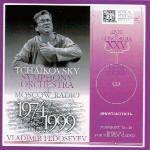
Vladimir Fedoseyev’s interpretive preferences rarely take in extremes of excitement, and this means that the ferocious second movement of the Tenth Symphony comes off sounding
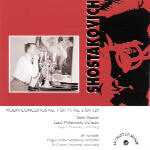
So many of today’s violin concerto recordings sound artificial because of their spotlit miking of the violin, making it sound gargantuan in relation to the
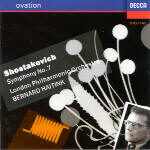
The Seventh is arguably Shostakovich’s most Mahlerian symphony, so it comes as no surprise that Bernard Haitink conducts in a manner similar to his later
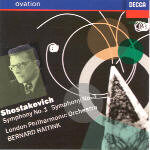
This pairing does not show Haitink’s Shostakovich at its best. The Third Symphony needs special pleading and receives nothing more than professionalism. The second half
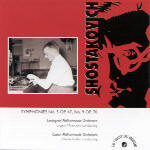
Zdenek Košler’s Shostakovich Ninth is a classic. He perfectly realizes the music’s ingenious fusion of circus and military elements, from the quick-step march of the
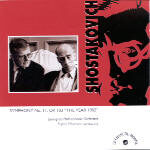
Let’s face it, Shostakovich’s Symphony No. 11 is not a great work, but it’s enjoyable nonetheless for the lurid aural spectacle it presents. Not just
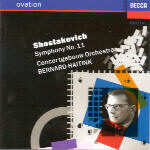
This is one of the stronger issues in Haitink’s complete Shostakovich cycle, mainly due to the magnificent playing of the Concertgebouw Orchestra, which shakes off
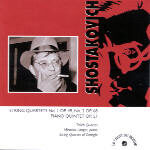
Dmitri Shostakovich did not start writing his string quartets until he was 32 and had climbed out from under Stalin’s reprobation with the success in
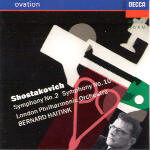
Bernard Haitink’s Shostakovich Tenth Symphony begins very well. He paces the first movement judiciously, neither too fast nor too slow, and the climax has great
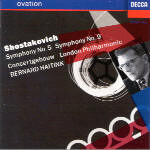
This release vividly illustrates Bernard Haitink’s variable success with the Shostakovich symphonies. Alongside a few really excellent performances (Symphonies Nos. 5, 8, 13, and 15),
![]()
